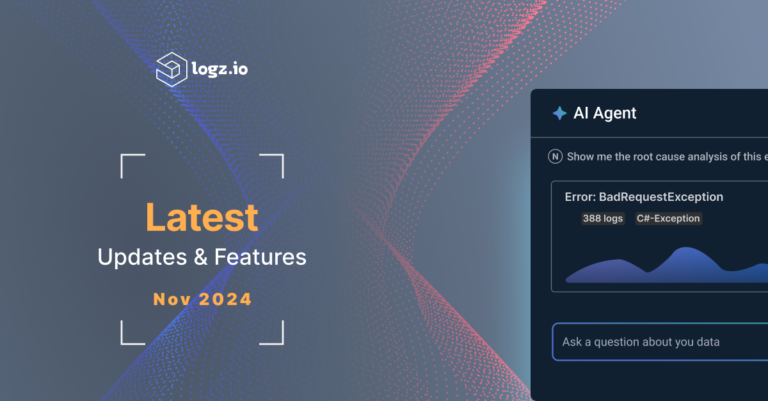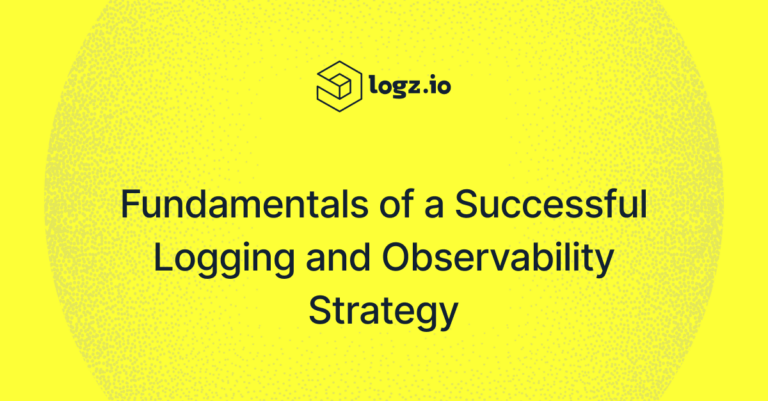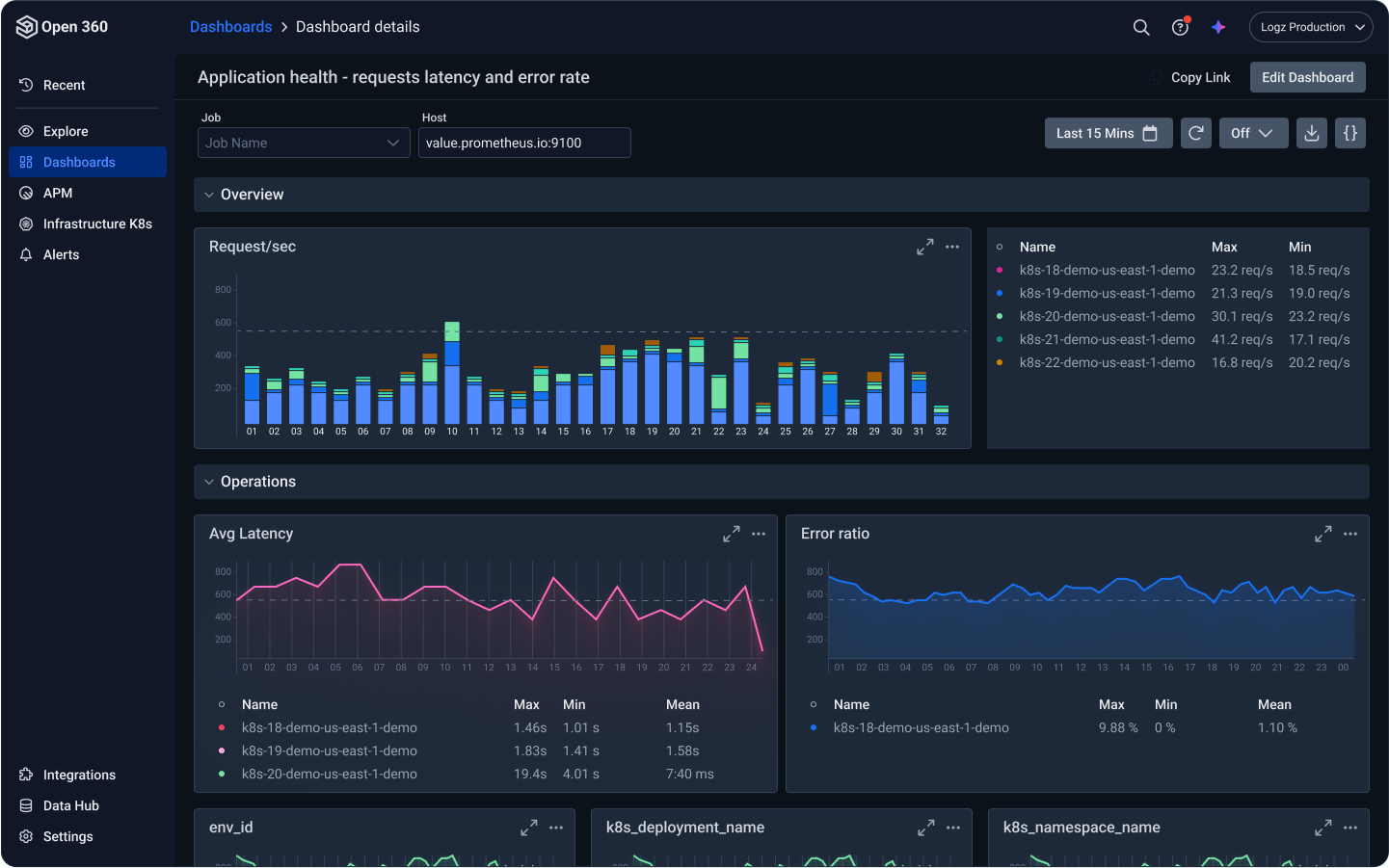
An Engineer’s Guide to Making Sense of Log Data
November 13, 2024
TL;DR
In the webinar, the experts explained why a log management strategy is crucial if you want to accurately assess the health and compliance of your applications. Topics include:
- How to filter out noise and prioritize critical events: It’s critical to structure your logs appropriately with clear formatting so they can be analyzed and used properly, as well as filtered out if they aren’t important.
- Techniques to correlate logs across different services and environments: Structuring data helps across the board so that teams can visualize actions.
- The role of AI in root cause analysis: Responsible AI use, with a focus on security and ethical practices, should remain central to any strategy involving AI in logging.
- Managing the cost of high data volumes: Tiering log storage by data importance will reduce costs and maximize efficiency.
Cloud native technologies have made it harder to understand how systems are behaving. Logs are the answer, but they can be voluminous and complex in any environment. How do you make sense of them?
Logz.io co-founder and CTO Asaf Yigal recently participated in a webinar hosted by LeadDev.com on this topic alongside fellow experts Tanvi Hungund of AWS, Neelesh Salian of Datavant and Matthew Hawthorne of Supreme Informatics.
Check out the full discussion:
Structuring Logs for Clarity and Efficiency
Asaf emphasized the importance of structuring logs with a clear format to enable efficient analysis and usage. By including specific, consistent fields such as “cluster,” “node,” and “pod name,” teams can quickly pinpoint issues in environments like Kubernetes. Structuring fields helps avoid the common problem of “logging everything,” which can create an overwhelming amount of data that complicates troubleshooting.
With the rise of Generative AI (GenAI), observability platforms are now poised to offer more automated root cause analysis and anomaly detection. Asaf highlighted recent developments in AI-based log analysis, explaining that, unlike earlier methods, these advanced AI systems can analyze vast amounts of data in real-time.
The goal is to move toward a more autonomous observability model, where routine tasks like alert correlation and root cause analysis can be handled by AI, freeing up engineers to focus on more complex challenges.
Responsible AI Use in Log Management
Tanvi emphasized the importance of responsible AI use in log management, particularly in balancing productivity and security. She suggested that companies be mindful of the access and permissions they grant AI tools. Responsible AI use, with a focus on security and ethical practices, should remain central to any strategy involving AI in logging.
Neelesh shared his perspective on how AI integration in DevOps may progress over time, emphasizing that human oversight will continue to be necessary as systems mature. During high-pressure incidents, AI can support engineers by surfacing critical insights and metrics more efficiently, enabling faster incident response.

Scaling Log Storage: Tiered Storage and Lifecycle Management
Asaf suggested tiering log storage by data importance to reduce costs and maximize efficiency. This involves categorizing data based on its significance to the organization. For instance, transaction logs for e-commerce companies are typically critical and might be stored in a high-access, low-latency environment, while less essential logs, such as those from internal systems, might be stored in cold storage.
Neelesh highlighted how understanding log access patterns (e.g., write-heavy vs. read-heavy usage) can also help inform storage strategies.
How You Can Get Efficient Log Analysis
The speakers offered practical techniques for navigating large volumes of log data to find relevant insights. Tanvi noted that filtering logs and reducing noise through structured logging commands is key in traditional setups. Asaf underscored the benefit of building pre-configured dashboards based on structured logs, which enable teams to access the data they need with minimal manual searching.
As logging needs continue to grow, organizations are moving from traditional approaches toward more automated, AI-driven log management solutions. With structured logging, responsible AI, and strategic tiered storage, companies can optimize their log data for greater insights, efficiency, and cost savings.
Logz.io provides users with AI-powered log management capabilities that allow organizations to automate more and more aspects of the process for maximum efficiency and greater clarity. Our log management interface has been integrated with the Logz.io AI Agent, a breakthrough in log analysis that can help put your organization on the path to autonomous observability.
The AI Agent provides Logz.io customers with these critical capabilities:
AI Agent for Data Analysis:Through an intuitive, chat-based interface, users interact with their data in real time, posing complex questions in plain language, and receiving insights without manual querying or navigating multiple dashboards. Learn more about Logz.io AI Agent and AI-powered data analysis for observability.
AI Agent for Root Cause Analysis (RCA): Via automated investigation, the AI Agent diagnoses the root causes of system issues, delivering detailed insights and actionable recommendations to dramatically reduce troubleshooting timeframes. Learn more about AI-powered root cause analysis.
If you’d like to learn more about log management from Logz.io and the AI Agent, sign up for a demo today.




